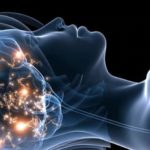A group of researchers at Johns Hopkins Medicine tested the effects of psilocybin, a serotonin 2a (5-HT2A) receptor partial agonist, and found that it implicates a region of the brain known as the claustrum, reducing senses of self or ego.
In their findings, appearing in NeuroImage, the study details the examination of 15 participants using functional magnetic resonance imaging (fMRI).
During their brain imaging tests, researchers observed the claustrum region of the brain after administering either a dose of psilocybin or a placebo.
According to the results, a dose of psilocybin helped lessen neural activity in the claustrum region by up to 30 percent, while increasing mystical experiences and emotion.
Essentially, the substance altered the way the claustrum region communicated with other areas associated with hearing, attention, and memory.
“Our findings move us one step closer to understanding mechanisms underlying how psilocybin works in the brain,” said Frederick Barrett, co-author of the study.
“This will hopefully enable us to better understand why it’s an effective therapy for certain psychiatric disorders, which might help us tailor therapies to help people more,” Barrett concluded.


